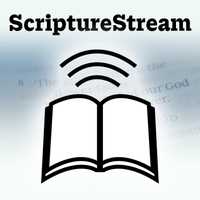- Lesson 1, continued:
- New Testament church – its creed (source of authority)
- We must of necessity put aside all creeds that have begun since the days of the apostles (continued):
- Augsburg Confession of Faith (1530 A.D.) – over 1400 years too late
- Westminster Confession of Faith (1550 A.D.) – over 1500 years too late
- All others of a later date
- Paul tells us that their source of authority was the inspired Scripture (II Timothy 3:16-17)
- II John 1:9. The Scripture makes the man of God complete and furnishes him unto every good work. Therefore, the teacher is fully equipped with the Scripture. He needs nothing more.
- See also II Peter 1:3 and Jude 1:3.
- We must of necessity put aside all creeds that have begun since the days of the apostles (continued):
- No one who really believes the Bible is the all sufficient Word of God will feel a need for human creeds.
- Conclusion: Regardless of what good traits a church may have, if its practice in whole or in part, is based upon the creeds of man, it is not the local church as described in the New Testament.
- New Testament church – its creed (source of authority)
- Lesson 2
- Another identifying characteristic of a local church is the name or descriptive phrase by which it is identified.
- The church universal (Ephesians 3:14-15; Hebrews 12:23)
- Church of Christ – Christ’s church (Matthew 16:18)
- Kingdom of Christ (Colossians 1:13)
- Body of Christ (I Corinthians 12:27)
- Temple of God (I Peter 2:5; Ephesians 2:21)
- House of God – Family of God (I Timothy 3:15; Ephesians 3:15)
- Christ’s fold – flock (John 10:16)
- The local church
- Church of God (I Corinthians 1:2)
- Church of Christ (Romans 16:16)
- Church of the Lord (Acts 20:28, ASV)
- Flock (Acts 20:28; I Peter 5:2)
- Note: Any descriptive phrase used in the New Testament to designate the Lord’s church always points ownership to heaven.
JJ
July 08, 2015
For further study, see also:
Questions or comments? Join our Discord server for further study.
